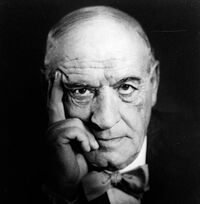Essay No. 2: Difference between revisions
(Created) |
|||
| Line 15: | Line 15: | ||
[[Category:Literature]] | [[Category:Literature]] | ||
[[Category:Essays]] | |||
Latest revision as of 11:16, 31 July 2022
Essay No. 2 is an essay written by Francesco Patrallez, the second of the Essays on Liberty, a series of articles defending the Proclamation of Punta Santiago. It was published on 14.XIII.1685 AN, under the pseudonym Defensor. This paper, titled "Concerning Influence from Foreign Powers on the Proclamation" as the first of 4 essays written by Patrallez where he adresses the advantages of a unified government over separate sovereignties. He discusses how an undivided country enforces laws with more efficiency, resolves conflicts, and gives better protection from foreign influences.
Content
Patrallez, writing under the pseudonym Defensor, argues that the unification of Alduria-Wechua is the best solution for providing prosperity for centuries to come. He argued that Alduria and Wechua consisted of a connected country. He wrote:
"For all general purposes we have been uniformly one people, with the same national rights, privileges, and protection, separated only by culture and geography."
He then proceeded to argue that a strong federal government, as opposed to divided confederacies, would assure security and prosperity. In support of the Proclamation, he argued that the people of the Committee for Alduro-Wechu Integration consisted of capable men. He said on that:
"This convention composes of men who possess the confidence of the people, and many of whom have become highly distinguished by their patriotism, virtue and wisdom, in times which try the minds and hearts of men, undertake the arduous task."
And,
"Still greater reason have they now to respect the judgment and advice of the convention, for it is well known that some of the most distinguished members of the Nation, who have been since tried and justly approved for patriotism and abilities, and who have grown old in acquiring political information, take part, and carry into it their accumulated knowledge and experience."
He also argued that Proclamation was a recommendation rather than a dictate, which was in direct answer to a pamphlet of Anti-Proclamation critic Alfredo, but that it required no blind approbation or reprobation. These statements echoe elsewhere in the Essays (for example, in Gutierrez No. 9), that emphasize the fundamental unity of the two nations, locate the ultimate source of authrotiy for the Proclamation in the people rather than the regions, and suggest a communal attachment of the people for Alduria-Wechua as a whole nation, rather than as simply an amalgamation of regions.
